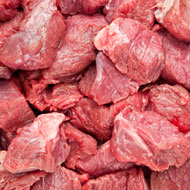Vets offered free certification training

In the event of a no deal Brexit there will be increased demand for Export Health Certificates (EHCs) for animal products.
Vets will be offered free training to certify the export of animal products to the EU, in a bid to help the UK prepare for a possible no deal Brexit.
In the event of a no deal Brexit there will be increased demand for Export Health Certificates (EHCs) for animal products. The UK’s chief veterinary officer Nigel Gibbens previously estimated that the volume of products needing veterinary certification could increase by as much as 325 per cent.
To meet the potential rise in demand, the APHA has announced free online training for the Official Controls Qualification for Products Export (OCQ(V) - PX), and the prerequisite courses in Essential Skills (OCQ(V) - ES) and Exports General (OCQ(V) - EX).
All three qualifications must be held in order to certify the export of animal products.
Training is provided by Improve International and is open to official veterinarians (OVs) who are registered on the database but do not hold the OCQ(V) - PX, and vets who are not currently OVs but wish to offer PX certification services.
BVA president Simon Doherty welcomed the news:
“It’s great to see that APHA is planning ahead and incentivising the uptake of export qualifications across the veterinary workforce. A no deal Brexit could see the requirement for veterinary certification services spiralling, so it makes sense to prepare ahead to ensure that there is adequate supply of suitably qualified vets to meet this demand in case no agreement is reached.
“We’ve repeatedly raised concerns about the veterinary workforce’s capacity to meet increased demand for services including certification and health testing in the event of a no deal Brexit. We will continue to engage with the government to ensure that the potential impacts of this scenario on both the workforce and animal welfare are understood and factored into contingency planning.”
The Welsh Government announced similar plans last week.
In order to take up the free training, contact the APHA OV team on 0208 026 1094 and provide your RCVS registration number and details of the qualification you wish to apply for.
Candidates must apply and be registered on the database and/or enrolled on the course by 29 March 2019. Access to free training may be withdrawn if the UK agrees on a deal with the EU that results in an implementation period.



 The veterinary mental health charity Vetlife is inviting the veterinary community to join it for a sponsored cold-water dip.
The veterinary mental health charity Vetlife is inviting the veterinary community to join it for a sponsored cold-water dip.